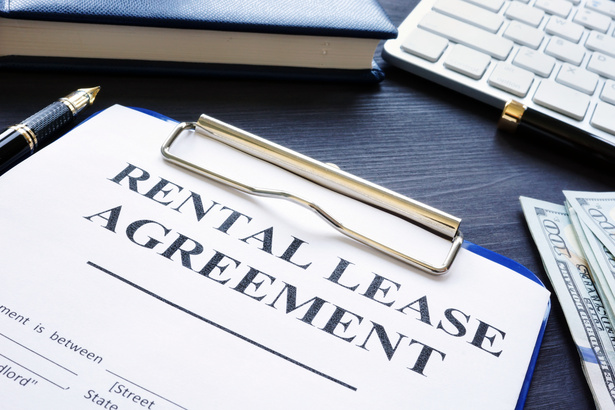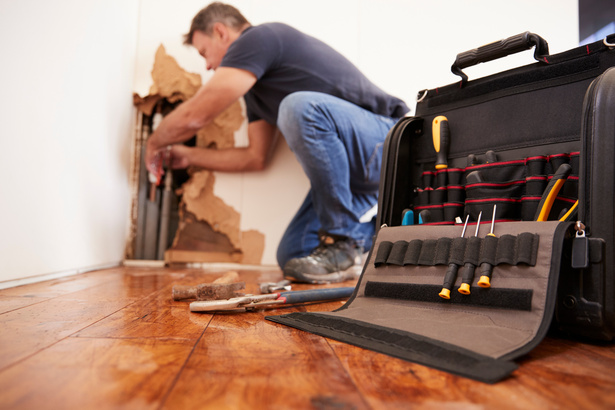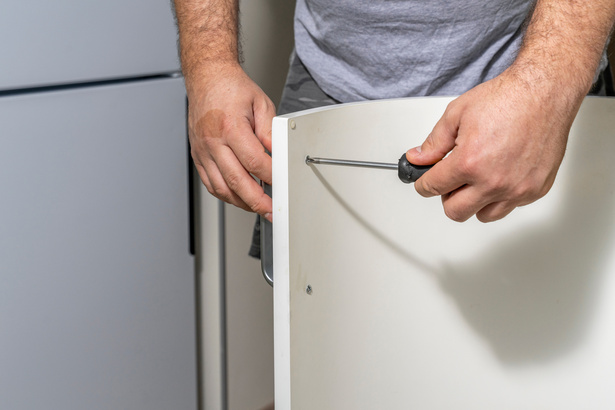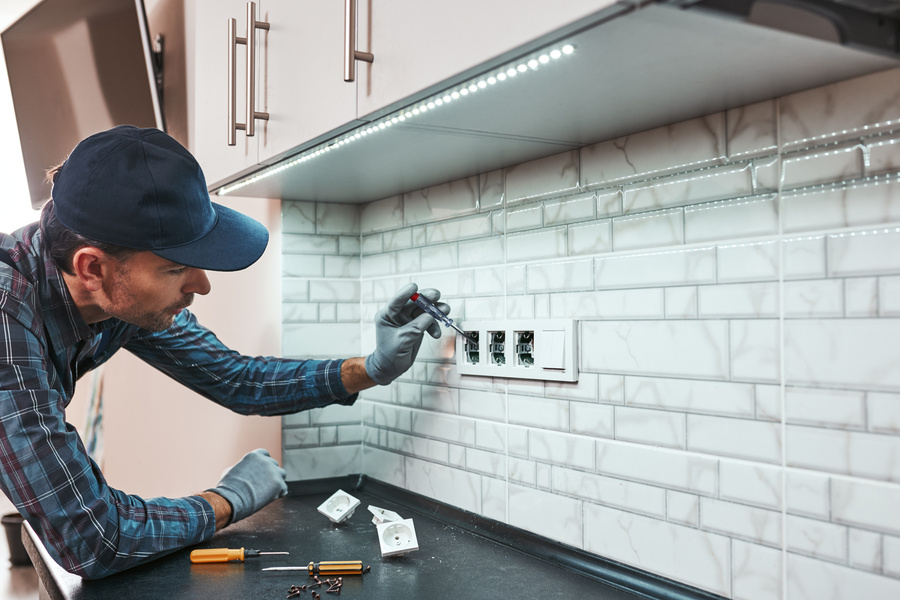Let's say it's 10:00 at night, and your bathroom sink is clogged. You've tried industrial-strength drain cleaner to no avail, and you can't just go without a functioning bathroom sink until your landlord can get someone out there. You have the tools, and you're pretty sure there's something stuck in the p-trap that the drain cleaner can't handle. What about replacing a light switch? You watched a YouTube video, and it doesn't look that hard, but should you even try? The question isn't easy to answer, but we can give you some guidelines on how best to proceed.
Be realistic about how dire the emergency is. If you can wait, and you've contacted your landlord, all the better. If you can't wait, you have to carefully assess whether or not you can actually safely and competently do the work. Before you even try, however, there are some important steps to take. Here's our guide to whether or not you should perform the apartment repair yourself.
What Does Your Lease Say?

Before you embark on any repair in your apartment, take the time to read the lease language. Of course, it may not address the issue of home repairs, but in case it does, you should know. It may explicitly state that you are not permitted to make repairs of any kind and must contact the landlord. If something in your apartment needs to be fixed, send your landlord a formal letter with a list of the repairs needed and request that they be made within a certain period of time if it is not an emergency. If it is an emergency, you can stipulate that it must be repaired within 48 to 72 hours. An emergency means it may threaten your health or safety or make your apartment unliveable.
If your landlord does not fix the problem, under certain circumstances, the Residential Tenants’ Right to Repair Act gives you the right to contact a professional to have the problem fixed and then deduct if from your next month's rent. If this happens, you should talk to a lawyer to find out what your rights are.
Are You Handy?

If it's unclear in your lease, you should ask yourself if you're any good with tools and repairs before you start to do anything remotely handy. The biggest thing your landlord/property owner are concerned about is you causing more harm than good and making a bad situation worse. You could also hurt yourself, which makes things even worse.
If you've done simple projects like woodworking, building furniture, minor plumbing repairs, etc., then you're probably more than fine with performing basic repairs that you don't want to wait for the landlord to do. But don't think that because you've seen someone do it on the internet that you can do with with the same skill level, so know your limitations. Understand what your skill level is and also make sure you have the right tools. Don't tighten a cabinet knob with a butter knife. Also, don't try to use your Dollar Store pliers to tighten a drain line.
Major Repairs

Major repairs should come with a warning: "Do not try this if you're not a professional." That's right. When it comes to big plumbing, electrical, or structural issues within your apartment, it's wisest not to do these yourself. Things can go bad very quickly, and you might not even get reimbursed for the materials you use. Heck, your landlord might even make you put things back the way they were at your cost.
Keep in mind that your landlord may terminate your lease if you do something you really weren't supposed to try. If you submit a request to have them fix something big, and they say you can do it yourself, get it in writing. Notify the landlord that you will proceed if they do not respond by a specified date. This will give you a record of their consent if something goes wrong. With that in mind, here's a list of major repairs you should not conduct yourself, in case you need to know:
- Water Leaks
- Toilet Problems (other than a simple clog)
- Fixing a Garbage Disposal
- Handling faulty electrical wiring
- HVAC problems
- Appliance problems (dishwasher, microwave oven, washer/dryer)
- Drywall repairs
- Broken windows/doors
- Installing anything new pertaining to plumbing, electrical, or carpentry
Minor Repairs

When we say minor, we mean minor. You shouldn't do the work if it requires a trade skill to perform the job. There are typically so many things that you can handle in your own apartment without needing high-level DIY skills. These are the kinds of tasks that absolutely don't require the work of a professional and can be done without much of a skill level at all. If you can operate a screwdriver or a hammer, you're probably going to be more than okay.
If you have even a small amount of trepidation in performing some minor work in your apartment, it's best to have your landlord take care of it. You don't want to end up in situation where you hurt yourself or do some damage to your apartment. Some people just aren't handy at all, and that's okay.
- Unclog a toilet with a plunger
- Tighten a handle or knob in the kitchen or bathroom
- Replace light bulbs (safe heights that don't require a ladder)
- Oil a squeaky hinge
- Unclog a shower head
- Change a smoke alarm battery
When To Call in the Pros

When in doubt, contact your landlord to have the work done. You can tighten a screw on a loose piece of trim without worrying but beyond that make sure you make a request so you're covered. Don't contact them to do one minor thing. Instead, try to lump things together so they can send someone out to take care of them in one fell swoop. Then, you can put the pressure on them to respond in a more timely fashion because you have a list of non-emergency items they should take care of.
Don't take the risk of hurting yourself or causing more damage, or both. Even if you know exactly what you're doing, things could really go wrong, especially with bigger jobs like handling your apartment's electrical wiring. Unless you're actually a licensed electrician (unlikely), it's best to leave it to the pros.


